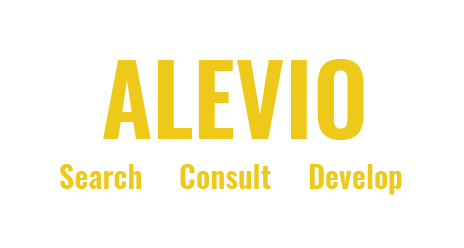
Setting the Standard: C-Suite’s Role in Corporate Governance

Corporate governance encompasses the rules, processes, and practices that direct a company. While this sounds like high-level administration, the reality is much more significant. It touches every part of a business, influencing its credibility, growth, and reputation. And at the heart of it are the C-suite executives, whose leadership directly impacts how well corporate governance is integrated into the company culture.
What can they do to ensure effective governance? Here’s where the C-suite plays a hands-on role:
Compliance: A Responsibility from the Top
In a world where legal violations can cause major financial and reputational damage, compliance is a top priority for any company. But ensuring compliance goes far beyond creating policies. It requires active leadership that demonstrates a commitment to following through.
C-suite executives should be champions of compliance programs, embedding them into the DNA of the business. This starts by staying informed of all relevant laws and regulations, from data protection (GDPR) to industry-specific rules. Leaders must ensure that compliance isn’t just the legal team’s concern, but a core element of the company’s strategy. For example, creating cross-departmental training programs and building robust reporting systems are ways to institutionalize compliance, ensuring it’s upheld at every level of the organization.
The consequences of overlooking compliance can be disastrous. Take Wells Fargo, for instance, where aggressive sales targets led employees to open millions of unauthorized accounts. This major compliance failure cost the company over $3 billion in penalties and a reputation hit that continues to haunt them. These kinds of corporate scandals highlight the need for C-suite executives to establish a compliance-first culture to protect their organizations from avoidable legal risks.
Risk Management: From Firefighting to Strategic Foresight
Managing risk is one of the most critical aspects of governance. But instead of reacting to crises, C-suite leaders must foster a proactive risk management culture. This involves identifying potential risks early and preparing mitigation strategies before they escalate into major problems.
Executives should implement company-wide risk assessments and scenario planning, ensuring the business is prepared for operational, financial, or reputational threats. For instance, the COVID-19 pandemic tested the resilience of countless organizations. Companies that had contingency plans and risk management frameworks in place were able to pivot more effectively, weathering the storm better than those without such strategies.
Risk management is also about seizing opportunities. When executives develop a clear understanding of potential risks, they can make more informed decisions, balancing risk and reward. This kind of strategic foresight allows companies to pursue innovation while safeguarding the business from unforeseen threats.
But what happens when leadership ignores risk? Volkswagen’s emissions scandal is a classic example of cutting corners in governance. Top executives allowed software to cheat emissions tests, prioritizing short-term gains over long-term risks. The result? Over $30 billion in fines and an irreparable blow to the company’s reputation.
C-suite leaders need to set the tone: Risk management is not an optional extra, but a crucial part of strategic governance.
Ethical Leadership: Walking the Talk
Ethical leadership is where corporate governance truly comes to life. When C-suite executives cut corners on ethics, the ripple effects are felt throughout the entire company. Employees, suppliers, customers, and investors look to leadership to set the moral compass. When that compass is off, the whole organization veers off course.
To lead ethically, executives must go beyond profit and prioritize transparency, fairness, and accountability. This can be achieved by building an inclusive work culture, promoting diversity in decision-making, and encouraging open dialogue around difficult issues. C-suite leaders should also implement regular ethical audits, ensuring that decisions made at the top align with the company’s core values.
The consequences of unethical leadership are clear. Remember Enron? Leadership was found guilty of accounting fraud, leading to the company’s collapse and costing employees and investors billions. This catastrophic failure could have been avoided had the leadership prioritized ethics over short-term profits.

What C-Suite Executives Can Do to Strengthen Governance
Here are actionable steps C-suite executives can take to ensure strong corporate governance:
- Create a governance framework: Develop and document the rules, policies, and procedures that define governance for the organization, including roles, responsibilities, and accountability measures. This framework should evolve with the business and external changes.
- Foster transparency: Promote an open-door policy where employees feel comfortable reporting potential issues without fear of retaliation. Encourage whistleblowing, establish anonymous reporting systems, and ensure that reported issues are investigated thoroughly and fairly. Transparency is the antidote to many ethical breaches.
- Build compliance into the culture: Ensure that compliance isn’t just a legal requirement but is baked into the company’s ethos. Incorporate compliance metrics into performance reviews, provide ongoing training, and celebrate teams that uphold strong compliance standards.
- Develop robust risk management processes: Conduct regular enterprise risk assessments, identifying and ranking risks based on their likelihood and impact. These assessments should not only focus on financial risks but also operational, technological, regulatory, and reputational threats. The C-suite should then empower teams with the tools to mitigate these risks effectively.
- Lead by example: Executives must embody the ethical behaviour they want to see throughout the organization. This involves consistently making transparent, value-driven decisions and holding themselves accountable for any missteps. When leaders exhibit strong ethical behaviour, it sets a standard for the entire company to follow.
The Costs of Cutting Corners
When C-suite executives cut corners in governance, the effects can ripple far beyond the immediate financial consequences. As we’ve seen in major corporate scandals, the long-term damage to trust, reputation, and investor confidence can be catastrophic.
Consider Boeing’s 737 Max debacle. Executives were found to have rushed production and cut costs in ways that compromised safety, leading to two fatal crashes and costing the company over $20 billion in settlements, lost sales, and a stock price that plummeted by 50%. This was not just a failure in engineering but in governance and leadership. Executives prioritized short-term profits over ethical decision-making, and the consequences were fatal—both in human lives and corporate value.
Such examples serve as a stark reminder that when leaders at the top cut corners, the fallout can be disastrous. Companies that prioritize governance build resilience against these types of failures and position themselves for sustainable growth.
Corporate Governance in Action: What the Data Says
Governance doesn’t just protect companies from scandals; it also boosts performance. Research consistently shows that companies with strong corporate governance outperform their peers. A study by McKinsey found that 84% of investors are willing to pay a premium for companies with strong governance practices. Good governance increases investor confidence, reduces the cost of capital, and drives long-term value creation.
Additionally, strong governance correlates with fewer regulatory penalties. According to the Stanford Closer Look Series, companies that prioritize compliance and ethical leadership experience 36% fewer regulatory penalties compared to those that do not. This translates to fewer costly legal battles and a stronger public reputation, both of which contribute to the bottom line.

Strengthening Governance in Portfolio Companies
For private equity firms, corporate governance is especially critical. Portfolio companies often face heightened scrutiny as they scale, and strong governance is essential for managing growth while maintaining compliance and mitigating risks. C-suite executives in these firms must be well-versed in governance practices, as their decisions will directly influence the success or failure of the investment.
Private equity firms can drive better governance by recruiting C-suite executives who have a proven track record in implementing strong compliance and risk management frameworks. Leaders who understand the importance of aligning governance with the company’s strategic goals can help portfolio companies navigate complex regulatory environments and achieve sustainable growth. Alevio Consulting specializes in connecting firms with these visionary leaders who know how to guide companies through the complexities of governance while driving profitability.
The Future of Corporate Governance: Trends to Watch
As business landscapes continue to evolve, so too will the demands on corporate governance. Here are some emerging trends that C-suite executives should be aware of:
- Environmental, Social, and Governance (ESG) Criteria: ESG is no longer a nice-to-have but a must-have. Investors and consumers are increasingly looking for companies that demonstrate a commitment to sustainability, social responsibility, and sound governance. C-suite executives should ensure that ESG is integrated into their governance frameworks and reflected in their corporate strategies.
- Data Privacy and Cybersecurity: As data breaches become more common, cybersecurity and data privacy are growing concerns for regulators and consumers alike. Executives need to treat these issues as core governance priorities, ensuring that data protection policies comply with global standards (such as GDPR) and that the company invests in state-of-the-art cybersecurity measures. The risk of non-compliance in this area is huge—according to IBM, the average cost of a data breach in 2023 was $4.45 million.
- Diversity, Equity, and Inclusion (DEI): Governance now goes beyond traditional compliance and risk management—it’s also about fostering a diverse, equitable, and inclusive workplace. Companies with diverse leadership teams tend to outperform their competitors, and DEI is increasingly becoming a governance priority. According to a 2020 McKinsey report, companies with greater gender diversity on their executive teams were 25% more likely to have above-average profitability. Executives must embed DEI into the governance structure, ensuring that policies and practices reflect a commitment to equity.
- Stakeholder Governance: The idea that companies must only prioritize shareholders is shifting. Stakeholder governance, which includes considering the impact of corporate decisions on employees, customers, and the broader community, is becoming more important. C-suite executives should take a balanced approach that aligns business objectives with stakeholder interests to build long-term, sustainable success.
Corporate Governance is Leadership in Action
For C-suite executives, corporate governance is more than just a duty—it is a form of leadership that drives sustainable success. By taking ownership of compliance, fostering a proactive risk management culture, and leading with ethics, they create a resilient business capable of thriving in today’s complex environment.
Private equity firms and other businesses can no longer afford to overlook the importance of strong governance. The right leadership is crucial for steering companies through challenges, seizing opportunities, and maintaining a solid reputation in the market. At Alevio Consulting, we specialize in connecting organizations with the executive talent that knows how to implement strong corporate governance while driving transformation and growth.
In a world where governance failures can result in millions—if not billions—in losses, executives who prioritize compliance, risk management, and ethics are not just protecting their companies; they are setting the foundation for lasting success.


